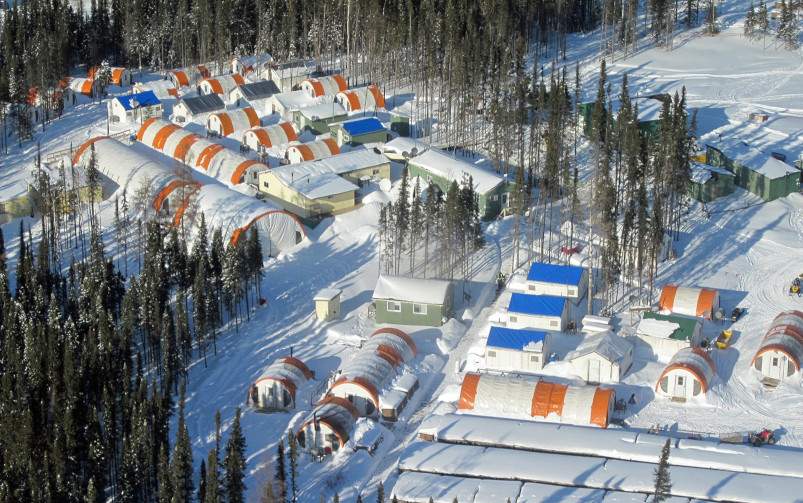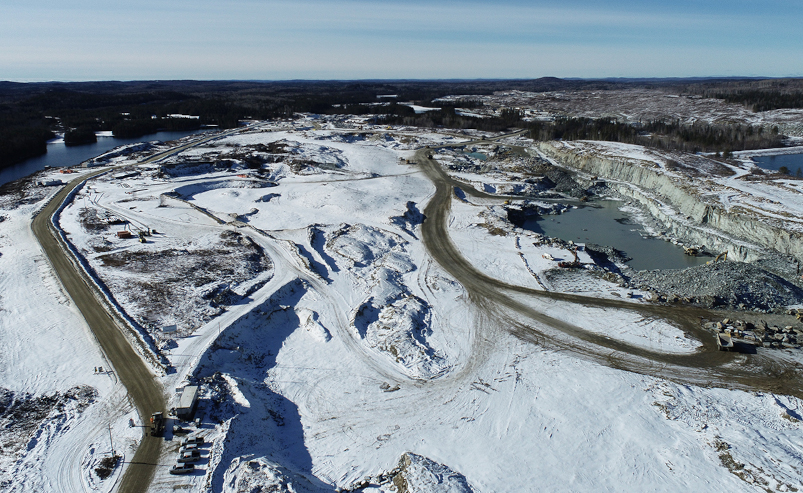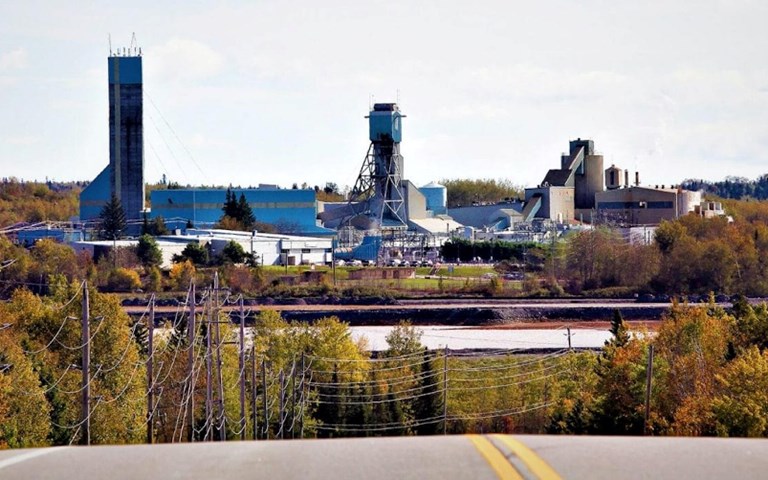Evolution Mining is making a big investment in its Red Lake mine complex in Ontario in hopes of turning the region into a premier mining district. Courtesy of Evolution Mining.
Welcome back to your weekly mining news recap, where we catch you up on some of the news you may have missed. This week we have stories about a strike at Rio Tinto’s operations in British Columbia, wildfires restrict mining activities in Ontario and a new statement on the Canada-EU Partnership on Raw Materials.
CIM Magazine’s Names to Know is a yearly feature that looks at some of the key players and who’s who of the mining industry. This year, in view of the COVID-19 pandemic that forced everyone to adapt, we took a look at some of the people that we think this year represented a spirit of adaptation and innovation.
Due to the wave of wildfires in northwestern Ontario, the provincial government imposed new restrictions on the mining, rail construction and transportation industries there to curb the likelihood of any human-caused fires, CTV News reports. The measures restrict the use of equipment and certain activities that are prone to throw sparks.
Mining lithium, which is seen as a critical mineral for the development of green tech, is still a risky proposition in Canada, and companies are trying to avoid some of the pitfalls of previous lithium project developers, the Financial Post reports. The lithium market, which has seen its share of ups and downs in recent years, is again experiencing a surge. Companies that want to take advantage of the hot market, however, need to manage their social and technical risks carefully.
Employee mental health should be a focus of any workplace, and the mining industry is no exception, which is why Workplace Safety North and NORCAT have teamed up to provide on-site trainers with a better understanding of how to raise awareness of mental health issues. In a field where poor mental health can pose safety risks, Angele Poitras, a Workplace Safety North psychological health and safety advisor, emphasized the importance of creating a space where employees feel secure enough to come forward about their mental-health concerns.
Barrick Gold restarted production at its Hemlo facility in Ontario after a fatality occurred last week, Mining Journal reports. The death of a contract miner, which took place on July 14, is currently being investigated and the company reported it is working closely with the Ministry of Labour and the Ontario Provincial Police.
Australian company Evolution Mining plans to make a large investment in its Red Lake gold mining and milling facility, spending hundreds of millions over the next three years with the intent of bringing gold production up to 350,000 ounces per year by 2026, Northern Ontario Business reports. To reach this goal, Evolution also acquired the nearby Bateman Mine, which together with the Campbell and Cochenour mines brings the company’s combined mineral resources in the area to 11.1 million ounces from 47.8 million tonnes of ore grading at 7.19 grams per tonne, which the Evolution hopes will accelerate the Red Lake area into a premier mining district.
Trade union Unifor Local 2301 has served Rio Tinto with a 72-hour strike notice, after nearly seven weeks of unsuccessful negotiations and a 100 per cent strike vote, the trade union said. The union is advocating for what it calls “reasonable and long-overdue changes to workers’ retirement income and benefit levels,” including better retirement security for younger workers. The union represents approximately 900 workers at the company’s aluminum smelting plant in Kitimat and power-generating facility in Kemano, British Columbia.
The labour dispute between Vale and United Steelworkers Local 6500 drags on into its eighth week, but the steelworkers were “optimistic” as the parties returned to the bargaining table on Monday, with the help of a third-party facilitator, Sudbury.com reports. Though it declined to comment on the situation out of respect for the process, Vale said it expects talks to continue through the week, and that the intent by both parties was to seek a path towards ending the dispute.
Public officials from Canada and the European Union released a joint statement on the Canada-EU Partnership on Raw Materials, outlining some of the first steps that will be taken to secure critical minerals supply chains. The two parties aim to establish funding for critical minerals projects in Canada and the EU, set up prize-based innovation challenges and advance best practices on mapping and classifying critical minerals.
Ontario is launching a new program to finance early mineral exploration for junior mining companies, MineConnect reports. The program will allow non-producing junior mining companies to apply for up to $200,000 per project to cover 50 per cent of eligible costs through the Ontario Junior Exploration Program (OJEP).
That’s all for this week! If you’ve got feedback, you can always reach us at editor@cim.org. If you’ve got something to add, why not join the conversation at our Facebook, Twitter or LinkedIn pages? Like your recap with a few more gifs? Check out our mining news recap stories on our Instagram.




